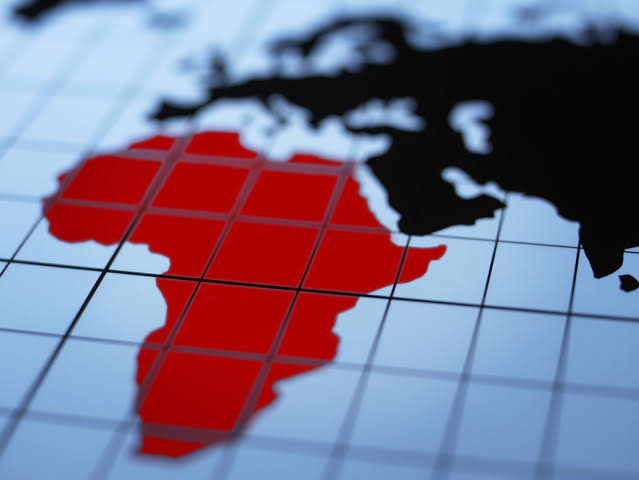
In the sprawling narrative of global geopolitics, the specter of neocolonialism looms ominously over the African continent, casting a shadow as pernicious as that of historical colonialism.
As the tendrils of Western influence tighten their grip on the economic, political, and cultural facets of African nations, a new form of subjugation emerges, veiled in the garb of development and globalization. This insidious form of control perpetuates the exploitation and marginalization of Africa, laying bare the harsh realities of neocolonialism—an ongoing saga of subversion and usurpation.
In the aftermath of colonialism, African nations ostensibly achieved independence, yet the economic umbilical cord to the West remained unsevered. The architecture of neocolonialism is meticulously crafted through mechanisms of economic dominance, where the West continues to extract wealth from the continent under the guise of trade and investment. Multinational corporations, with their insatiable appetite for Africa’s abundant resources, plunder the continent’s riches, leaving a trail of environmental degradation and socio-economic disparity.
These corporations operate with impunity, exploiting lax regulations and corrupt systems to maximize profits while local communities languish in abject poverty. The extraction of minerals, oil, and agricultural products funnels vast wealth to Western coffers, perpetuating a cycle of dependency and underdevelopment. The phenomenon of “resource curse” aptly encapsulates this paradox, where nations rich in natural resources remain impoverished due to exploitative practices and inequitable distribution of wealth.
Another cornerstone of neocolonialism is the strategic imposition of debt. Western financial institutions, under the aegis of the International Monetary Fund (IMF) and the World Bank, ensnare African nations in a web of debt, rendering them beholden to their creditors. The stipulations attached to these loans—ostensibly aimed at fostering development—often entail austerity measures that cripple public services, undermine sovereignty, and paralyse economic growth.
The structural adjustment programmes imposed by these institutions have wreaked havoc on African economies, dismantling social safety nets, privatizing essential services, and exacerbating inequality. The resultant economic fragility forces nations into a perpetual cycle of borrowing, where they remain shackled by debt repayments that divert resources away from critical development needs. This debt bondage serves as a powerful tool of control, dictating policy decisions and perpetuating Western dominance.
Neocolonialism extends beyond economic and political dimensions, permeating the cultural fabric of African societies. The relentless onslaught of Western cultural imperialism manifests through media, education, and consumerism, eroding indigenous cultures and identities. The homogenization of culture, propagated through Western media conglomerates, inundates African societies with foreign values, norms, and lifestyles, marginalizing local traditions and epistemologies.
The educational systems in many African nations, often remnants of colonial legacies, prioritize Western knowledge paradigms, relegating indigenous knowledge systems to the periphery. This intellectual colonization perpetuates a sense of inferiority and dependency, undermining efforts to harness local knowledge for sustainable development. The dominance of Western brands and consumer goods further entrenches cultural hegemony, as African markets are flooded with products that symbolize status and modernity, displacing locally produced goods and strangulating domestic industries.
The political sphere is not immune to the machinations of neocolonialism, where Western powers exert influence through covert and overt means to shape the governance of African nations. The installation and support of pliant regimes, often through dubious electoral processes or outright coups, ensure the perpetuation of Western interests. These puppet governments prioritize foreign agendas over national sovereignty, facilitating the continued exploitation of resources and suppression of dissent.
Moreover, the imposition of Western models of governance and democracy, without regard for local contexts and traditions, often leads to political instability and conflict. The arbitrary borders drawn by colonial powers, disregarding ethnic and cultural divisions, continue to fuel strife and fragmentation, with Western nations frequently intervening under the pretext of peacekeeping or humanitarian aid, further entrenching their control.
In the face of this multifaceted neocolonial oppression, the clarion call for Pan-African solidarity and self-determination resonates with renewed urgency. African nations must forge a collective front to reclaim their autonomy and chart a path towards sustainable and equitable development. This entails a repudiation of exploitative economic models, the cultivation of self-reliant economies, and the assertion of cultural sovereignty.
Regional integration and cooperation can serve as potent counterweights to Western dominance, fostering economic resilience and political stability. By strengthening intra-African trade, investing in local industries, and promoting knowledge exchange, African nations can diminish their dependency on external forces and harness their collective potential. Furthermore, the reclamation of cultural identity through the promotion of indigenous knowledge systems, languages, and traditions is imperative in resisting cultural imperialism and fostering a sense of pride and unity.
Neocolonialism, with its insidious and pervasive tentacles, continues to stifle the aspirations of African nations, perpetuating a cycle of exploitation and dependency. Yet, the spirit of resilience and resistance endures, as the continent’s peoples and leaders strive to break free from the yoke of Western dominance. By embracing Pan-African solidarity, championing self-determination, and reclaiming cultural sovereignty, Africa can transcend the shackles of neocolonialism and forge a future of true independence, dignity, and prosperity. The path to liberation is arduous, but the promise of a liberated Africa shines brightly on the horizon.



Discussion about this post